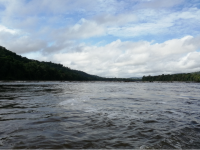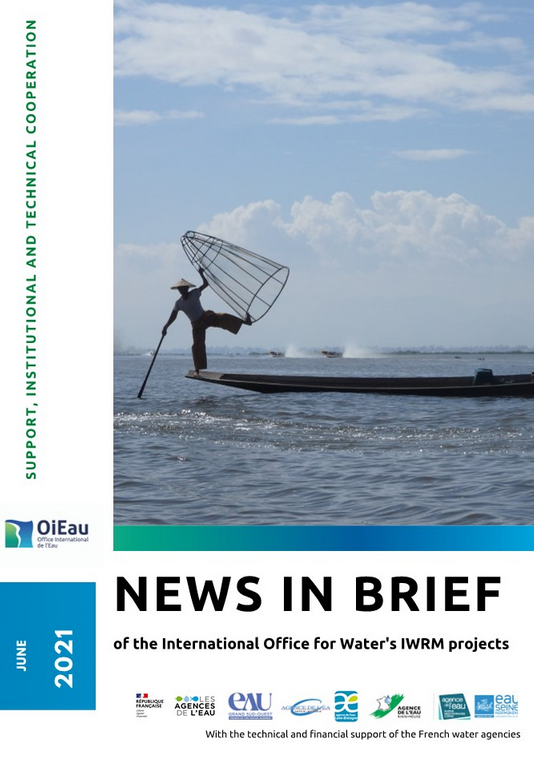Read the NEWS IN BRIEF of the International Office for Water's IWRM projects !

This document presents the progress made in 2020/2021 of the institutional cooperation projects for Integrated Water Resources Management (IWRM) at the international level (Africa, Latin America, South-East Asia) implemented by OiEau with the technical and financial support of the French water agencies.
There is a very broad international consensus that the resource should be managed at the hydrographical basin level, that all resources (surface water, groundwater, biodiversity, etc.) and uses should be studied, and that local stakeholders (users, elected representatives, administrations, civil society) should be involved in the decision-making process within a participative governance system. The integrated approach developed in France has largely inspired the European legal framework, particularly the Water Framework Directive.
Designing and implementing such integrated policies is the core business of the water agencies in France. Within the OiEau, we rely on this wide-ranging expertise and capitalise on the lessons learned from the numerous projects carried out over the years, in interaction with our partners in countries, to develop our cooperation actions according to various pillars:
- Governance, including the definition of appropriate legal and institutional frameworks at the river basin level (river, lake or aquifer). The participatory dimension is a key element in achieving genuine policy ownership;
- Identification of the main water resource issues within natural watershed boundaries and methodological support to the planning processes, integrating the dimension of adaptation to climate change and implementation of the developed plans;
- Strengthening of monitoring tools and interoperability of information systems for the development of decision support tools;
- Implementation of sustainable financing mechanisms, in particular through the user-pays and polluter-pays principles and payments for environmental services. .
Regardless of the cultural, climatic, economic or social context, these pillars seem to be essential. A genuine political will, raising awareness of the issues, and mutual trust are the levers needed to take action. Our projects described hereafter include a strong dimension of expertise and technical assistance, but also training sessions focused on practice and coaching, which are very interesting tools to develop skills and transfer knowledge. They take place in the pilot watersheds but also generally include a capitalisation component at national level.


